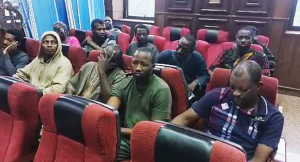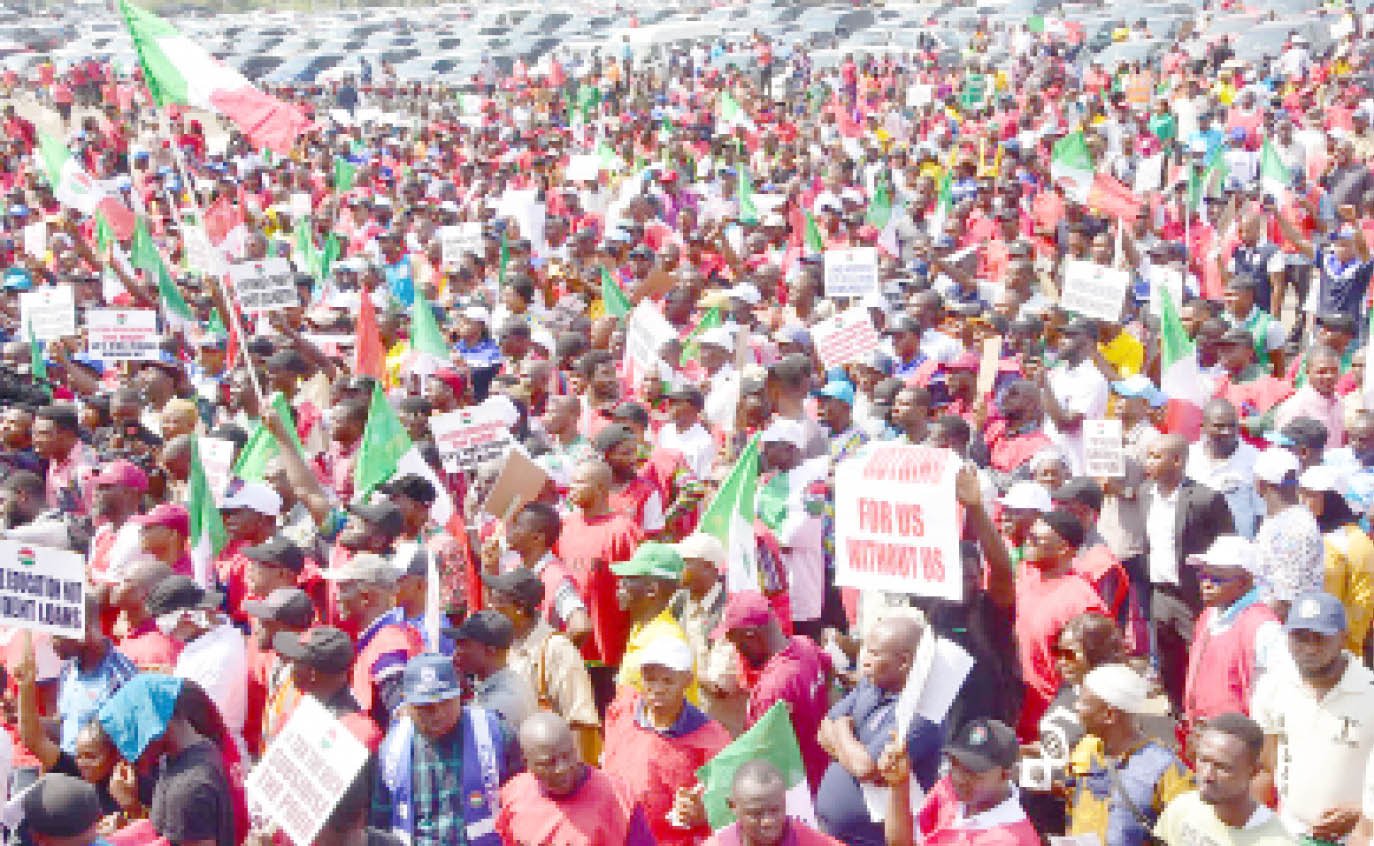The nationwide #EndBadGovernance protests, held between August 1 and August 10, 2024, left behind a trail of destruction, sorrow, and numerous arrests. Initially a peaceful demonstration against systemic corruption, poor governance, and economic hardship, the protests were hijacked by violent elements, leading to widespread chaos and devastation across several Nigerian cities. Juliet Jacob writes on the aftermath of the protests.
A Protest Fuelled by Years of Frustration
The #EndBadGovernance movement was more than just a spontaneous outburst—it was a manifestation of deep-seated frustration with the Nigerian leadership. Over the years, citizens had become increasingly disillusioned with systemic corruption, economic mismanagement, security challenges, and a glaring lack of accountability from those in power. The protest, which began as a peaceful call for better governance, quickly escalated into a national crisis.
“The protest exposed the deep divisions within Nigeria and highlighted the fragility of the country’s social fabric. Years of pent-up anger finally erupted, and the situation rapidly got out of hand,” Jacob notes.
Allegations and Arrests

As the protests spread, the Nigerian government moved swiftly to arrest and charge protest leaders and participants. On Monday, August 26, 2024, ten protesters were arraigned at the Federal High Court in Abuja on charges ranging from plotting to overthrow the government to inciting violence. The defendants included Michael Tobiloba Adaramoye (aka Lenin), Adeyemi Abiodun Abayomi (aka Yomi), and Angel Love Innocent, the only female among them. They were accused of working in concert with a 70-year-old British citizen, Andrew Martin Wynee, to incite mutiny.

The charges brought against them were severe. The government alleged that the protesters had conspired to destabilize the country by calling on the military to overthrow President Bola Ahmed Tinubu, inciting public unrest, and attacking government buildings and police stations. The protesters pleaded not guilty to all charges.
According to the prosecution, the defendants “conspired to commit felony to wit: treason,” a crime punishable by death under Nigerian law. They also faced accusations of inciting mutiny and waging “war against the state.” The trial judge, Emeka Nwite, ordered the defendants’ remand in prison and adjourned the case until September 11, 2024, for a ruling on their bail applications.
The Right to Protest and Legal Representation
The Nigerian Bar Association (NBA) has stepped in to offer legal assistance to the detained protesters. Mazi Afam Osigwe, the NBA’s spokesperson, announced a nationwide Pro Bono support program to ensure that the protesters are not abandoned in their legal battles. The NBA has also tasked its local branches with overseeing the trials to ensure that the legal rights of the defendants are upheld.

“I have tasked the branches of the Nigerian Bar Association with overseeing the trials of the #EndBadGovernance protesters,” Osigwe stated on his social media account. “We have also initiated a Pro Bono support program to provide legal assistance to those without representation.”
The NBA’s Citizens’ Liberties Committee is working closely with local branches to monitor the court proceedings and ensure that the rule of law is followed. Despite these efforts, the government’s aggressive clampdown on protesters has raised concerns among human rights organizations.
Amnesty International: A Condemnation of the Government’s Actions
Amnesty International has condemned the Nigerian government’s treatment of the #EndBadGovernance protesters. The organization referred to the trials as a “sham” and accused the government of violating the rights of the detained protesters.


In a statement, Amnesty International said, “We condemn the sham trials even before they began and call for an end to these bizarre attempts to deprive people of the right to peaceful protest.”
The organization also called on the Nigerian authorities to release the detained protesters and investigate the deaths of demonstrators killed by security forces during the protests. “Many protesters were subjected to horrific violations by security personnel, including excessive use of force and misuse of tear gas,” the statement read.
Charges of Treasonable Felony and Beyond
The charges against the protesters are anchored in the Nigerian Penal Code, which defines treason as “levying war against the state, in order to intimidate or overawe the President or the Governor of a State.” If convicted, the defendants could face the death penalty.
Count one of the charges alleges that the protesters conspired with Andrew Martin Wynee and others “to commit felony to wit: Treason.” The prosecution also accused them of inciting mutiny and mobilizing people to attack public institutions, including police stations, court complexes, and government offices.
The government further claimed that the protesters, armed with placards calling for an end to bad governance, incited public disaffection and called for the removal of President Tinubu by chanting “Tinubu must go” and “It is military we want.”
A Grim Reminder of Past Protest Crackdowns
The current crackdown on protesters is reminiscent of the arrest of Omoyele Sowore in October 2019 during the #RevolutionNow protests. Sowore faced charges of treasonable felony and was detained for years, but the case eventually collapsed when the charges were dropped by the Tinubu administration in February 2024.
The treatment of the #EndBadGovernance protesters has revived memories of past government responses to public dissent and raised fears of further violations of constitutional rights.
Conclusion: A Country at Crossroads
The aftermath of the #EndBadGovernance protests highlights the delicate balance between citizens’ right to protest and the government’s responsibility to maintain order. As the trial of the protesters continues, the eyes of the nation—and the world—are on Nigeria, watching how it handles this critical moment in its history. The protests may have ended, but the issues they raised—corruption, poor governance, and economic hardship—remain unresolved, leaving the country’s future uncertain.
Amnesty International’s warning rings loud: “The Nigerian government has been wrongfully placing priority on punishing protesters without saying even a word on the urgent need to investigate the killing of dozens of protesters. The government should listen to critics, address rampant insecurity, corruption, and mismanagement.”




Nice blog here Also your site loads up very fast What host are you using Can I get your affiliate link to your host I wish my site loaded up as quickly as yours lol